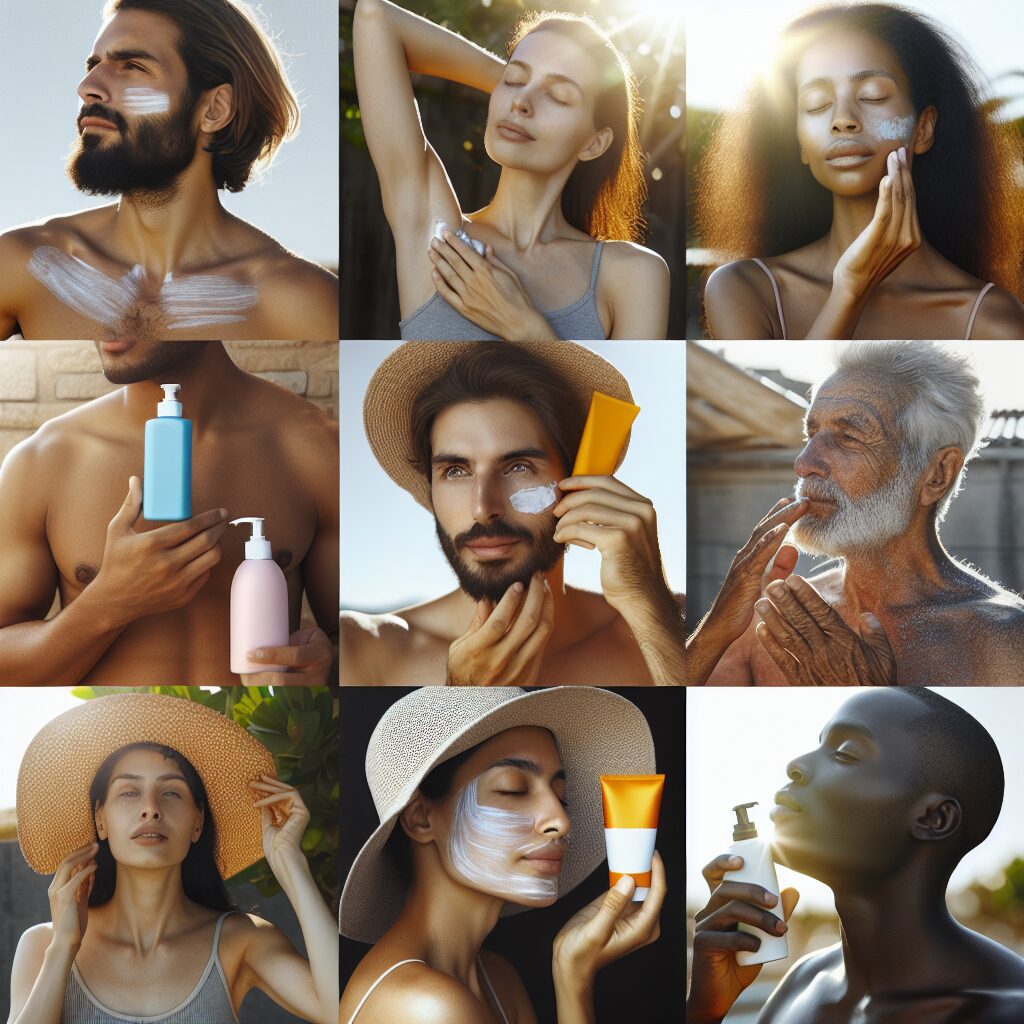
How to Keep Your Skin Safe and Healthy

Introduction
Our skin, the largest organ of the body, serves as a crucial barrier against environmental damage and plays a significant role in our overall appearance and confidence. According to recent studies, 70% of women and 30% of men actively seek ways to maintain healthy, glowing skin. Understanding how to care for your skin effectively can enhance its health and boost your self-esteem.
In this article, we’ll explore practical tips to keep your skin safe and healthy. From identifying your skin type to adopting the right skincare routine and diet, we’ll provide actionable advice to help you achieve radiant and resilient skin.

Understanding Your Skin Type
Knowing your skin type is the foundation of effective skincare. Each skin type—normal, dry, oily, combination, and sensitive—requires specific care and products to maintain its health.
How to Determine Your Skin Type
- Wash your face with a gentle cleanser and pat it dry.
- After an hour, observe your skin:
- Dry Skin: Tight, flaky, or rough.
- Oily Skin: Shiny or greasy appearance.
- Combination Skin: Oily in the T-zone (forehead, nose, chin) and dry in other areas.
- Sensitive Skin: Prone to redness or irritation from products or environmental factors.
Tips for Each Skin Type
- Dry Skin: Use hydrating moisturizers and avoid harsh cleansers.
- Oily Skin: Opt for lightweight, oil-free moisturizers and non-comedogenic products.
- Sensitive Skin: Stick to fragrance-free and hypoallergenic products.

Protecting Your Skin from the Sun
The sun’s harmful UV rays are a leading cause of premature aging, wrinkles, and skin cancer. Protecting your skin from these rays is essential for maintaining its health.
Essential Sun Protection Tips
- Apply Sunscreen: Use a broad-spectrum sunscreen with SPF 30 or higher daily. Reapply every two hours.
- Wear Protective Gear: Hats, sunglasses, and long-sleeved clothing can shield your skin from direct sun exposure.
- Avoid Peak Hours: Limit outdoor activities between 10 a.m. and 4 p.m. when UV rays are strongest.
- Regular Skin Checks: Monitor your skin for unusual spots or moles, and consult a dermatologist if you notice any changes.
Follow a Healthy Diet
Your diet significantly impacts the health and appearance of your skin. Incorporating nutrient-rich foods can improve hydration, reduce inflammation, and enhance your natural glow.
Skin-Friendly Foods
- Fatty Fish: Rich in omega-3 fatty acids, it reduces inflammation and keeps skin supple.
- Avocados: High in healthy fats and antioxidants for hydration and anti-aging.
- Green Tea: Packed with antioxidants to combat free radical damage.
- Hydrating Foods: Include watermelon, cucumbers, and tomatoes for added hydration.
Foods to Limit
- Sugary Foods: Can lead to breakouts and inflammation.
- Processed Foods: Often high in unhealthy fats and low in essential nutrients.
Stay Hydrated
Water is vital for skin health. Dehydrated skin can appear dull, dry, and more prone to irritation. Aim to drink at least 8 glasses of water daily, and boost hydration by consuming water-rich foods like cucumbers and oranges.

Develop a Consistent Skincare Routine
A consistent skincare routine tailored to your skin type helps maintain its health and appearance. Here’s a step-by-step guide:
- Cleanse: Wash your face twice a day with a gentle cleanser.
- Exfoliate: Remove dead skin cells 1-2 times a week using a chemical or physical exfoliant.
- Tone: Balance your skin’s pH levels with an alcohol-free toner.
- Moisturize: Apply a moisturizer suited to your skin type to lock in hydration.
- Sunscreen: Finish your morning routine with sunscreen for UV protection.
- Night Care: Use a serum or night cream to repair and rejuvenate skin overnight.
Manage Stress for Healthier Skin
Stress can wreak havoc on your skin, causing breakouts, dryness, and premature aging. To manage stress effectively:
- Practice Meditation: Apps like Calm and Headspace offer guided meditation sessions.
- Exercise Regularly: Physical activity releases endorphins that can improve your mood and reduce stress.
- Connect with Loved Ones: Spending quality time with friends and family can have a calming effect.

Skin Safe and Healthy research
Skin Safe and Healthy: Insights from Research
Taking care of your skin is essential for maintaining overall health and confidence. According to a recent survey, 65% of individuals report that skin health significantly impacts their daily well-being. Both men and women face unique challenges when it comes to achieving Skin Safe and Healthy conditions, making it important to tailor skincare routines to individual needs.
Key Findings on Skincare Habits
Research highlights that the most common concerns include dryness, sensitivity, and UV damage. For instance, 70% of women prioritize daily moisturizing as a core part of their routine, while 45% of men focus on sun protection to maintain Skin Safe and Healthy results. These habits underline the importance of adopting specific measures to address personal skin issues.

Recommendations for All Skin Types
Hydration Is Key: Studies suggest that drinking sufficient water daily improves skin texture and minimizes dryness, a concern for 50% of participants.
Sunscreen Matters: Over 60% of people reported better skin health when consistently using sunscreen with SPF 30 or higher.
Simple Routines Work: Keeping routines manageable yet effective ensures that more individuals stick to them. Cleansing, moisturizing, and sun protection are the most recommended steps.
Balancing Skin Health Across Genders
Men and women have different priorities, but both share a common goal: keeping their Skin Safe and Healthy. Customizing products based on skin type and lifestyle ensures the best outcomes. Men may benefit from lightweight, non-greasy products, while women often prefer hydrating serums and creams for lasting protection.
By aligning your skincare practices with proven research findings, you can achieve healthier, more radiant skin. Prioritizing these steps not only improves skin health but also enhances overall confidence and well-being.
FAQs
Q: How often should I exfoliate my skin?
A: Exfoliate 1-2 times a week, depending on your skin type. Over-exfoliation can strip the skin and cause irritation.
Q: Can diet really affect my skin?
A: Yes, a balanced diet rich in antioxidants, vitamins, and healthy fats can significantly improve skin health and prevent issues like dryness and inflammation.
Q: Do men and women need different skincare routines?
A: While the basics remain the same, individual concerns like shaving for men or hormonal changes for women may require tailored products.
Conclusion
Caring for your skin is essential for maintaining its health, appearance, and function. By understanding your skin type, following a consistent routine, protecting it from the sun, and adopting a healthy lifestyle, you can achieve radiant and resilient skin. Always choose skincare products suited to your needs and consult a dermatologist if you notice any unusual changes.
With these practical tips, keeping your skin safe and healthy becomes an achievable goal. Start today and embrace the glow of healthy skin




